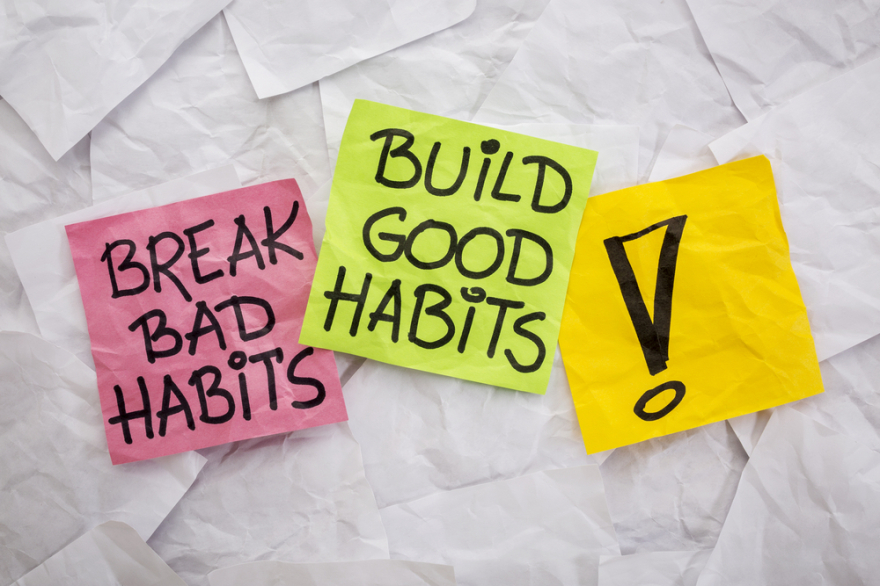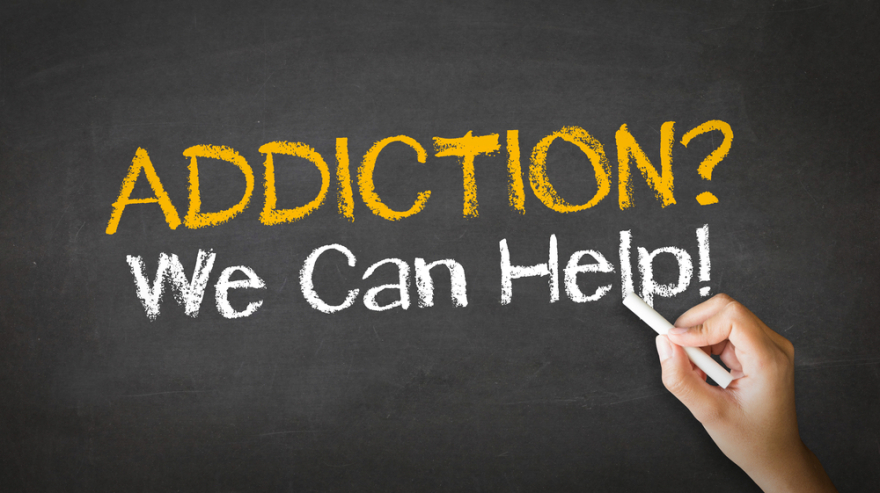|
Addictions vs. Habits – What is the Difference?
Rev. Dr. Kitty Boitnott, NBCT, RScP
Heart-Centered Career Transition and Job Search Coach | Life Strategies Coaching
As human beings, we are all naturally inclined to develop habits. Our minds allow us to pick up behavior patterns and consistently, though sometimes unknowingly, repeat doing the same things until we don't think about them anymore.
This is how we learn new things and how we function. For example, most of us drive out of habit, and some of our practices may be positive while others are not. Developing certain habits also works against us when we're not being deliberate about the behaviors that we choose to adopt.
Unfortunately, this is how the reality of addiction has become more and more prevalent in our environment. Practically every addiction began as a seed of a negative behavior that was repeatedly reinforced.
There's a fine line that separates a habit from an addiction even though both of them grow out of consistency. A behavior repeated day in and day out could be all it takes to reinforce a bad habit or a harmful addiction.
Addictions tend to lean toward destroying an individual's preferred way of life. In medical terms, addiction is considered to be a disease. Unfortunately, you'll have no easy way out of an addiction, despite your wish to be free of it.
But overcoming addiction is also not impossible if you are determined. Indeed, overcoming any addiction demands a great deal of work.
For addiction treatment to succeed, it usually needs specialized treatment instead of changing unhealthy habits.
There needs to be a clear distinction between the two. What is the difference between an addiction and a bad habit?
Habits

Habits are a very natural human tendency. We are all naturally drawn to creating habits through a pattern of behavior known as a habit loop. An activity becomes a habit when the brain considers the trigger rewarding. This enables the brain to remember the activity loop or the sequence of actions leading to the feeling of gaining the reward. But habits can either be good or bad.
Behaving in a certain way seems to be a conscious choice and decision, or at least that is what we tell ourselves. But in fact, there are actions we are inclined to do more of due to how our brain's exposure to it registers an exciting response. By repetitive exposure to the cue, habits are born.
Some research says that it takes an average of 66 days to form a habit while 21 days to break it. However, the research varies on that.
Forming a habit can vary from one person to another, depending on the individual's brain response to the trigger. Still, the bottom line is, that all habits serve a benefit that the brain recognizes for some reason.
Good habits such as exercising, meditation, and eating healthy are thought to add value to your life. Bad habits, on the other hand, benefit the individual by filling a specific biological or emotional need. Unfortunately, this need is often unconscious or, at least, not at the forefront of our conscious awareness.
In cases when a person unconsciously has an unmet emotional need, when the brain recognizes a trigger that seeks to fill it, it will usually make it easier for the bad habit to be developed. Often, bad habits can arise out of feeling stressed, too. When changing habits, if the underlying condition remains unaddressed, changing the bad habit itself can become a futile effort.
Addiction

Unhealthy habits can arise from our conscious or unconscious will to do something, but addictions are triggered by some physiological connection to a source or substance.
Social drinking can start as an unhealthy habit, for example, but if alcohol is consistently consumed in substantial amounts, and being drunk is becoming more of the individual's goal every single time. Then, it can develop into an alcohol addiction.
Addiction is often borne out of an unhealthy habit. Habits turn into addictions when the brain labels a harmful trigger or substance as beneficial or pleasurable. In this case, the brain rewires the bad habit, making it appear useful or beneficial to you when it is not. Harmful substances such as alcohol, tobacco, or drugs can affect the natural pattern of the reward circuits, labeling the source to be pleasurable and ultimately a need – something you can't live without.
As a former smoker, I can admit that I was addicted long before I was willing to acknowledge it--even to myself. I told myself that I could quit anytime I wanted to. I just didn't want to quit because I was addicted! When I finally DID quit, it was one of the hardest things I have ever done.Thankfully, I did manage to quit smoking after several unsuccessful attempts.
To quit, I had to eliminate potential triggers like drinking coffee in the morning or having a drink when out with friends. Both of those behaviors were triggers for me to light up a cigarette.
I also washed all the curtains and scrubbed down the walls in my house to get rid of the residual odor of smoke and to give myself a sense of a "clean start."I had to do something else with my hands when I felt the urge to reach for a pack of smokes. When I got in the car, I had to concentrate on driving instead of lighting up. When I started to feel jittery and wanted to light up, I had to remember to breathe in deeply and count to five.
When addiction sets in, doing usual, pleasurable activities pales in comparison to satisfying the addiction. This is because addictive substances spike your dopamine levels up to 10x more than natural rewards. When an addicted person tries to quit the trigger, they experience physical withdrawal symptoms that are very hard to get past, so they fall into relapse and again find themselves unable to escape the source of their addiction.
This is why it is so hard to quit smoking or any other addictive substance.
If you haven't yet seen it, watch the Dopesick series streaming on Hulu and other applications that may be carrying it for insight into how the people who created oxycontin deliberately got people hooked on their drug so they could make bigger profits. The series will [rightly] infuriate you and educate you at the same time.
If something is merely an unhealthy habit, making the change on your own is doable if unpleasant. When ridding yourself of unhealthy habits, like overeating or smoking, you need to put in the effort to altering your environment, and you need to be determined enough to monitor your behavior until you have created a new habit to replace the old one.
People addicted to a substance like those in most addictive drugs usually need to seek a health professional for help, often ending up in rehabilitation centers or support programs. Staying in their own environment sets them up for failure in most cases. Being in an external environment that supports one's full recovery is the key to overcoming most cases of addiction to a chemical substance.
Addiction may feel impossible to overcome and is rarely something people can change on their own. If you are suffering from an addiction to a substance that interferes with your ability to function day-to-day, get help sooner rather than later. Don't let it blow up your life. Get help.
|